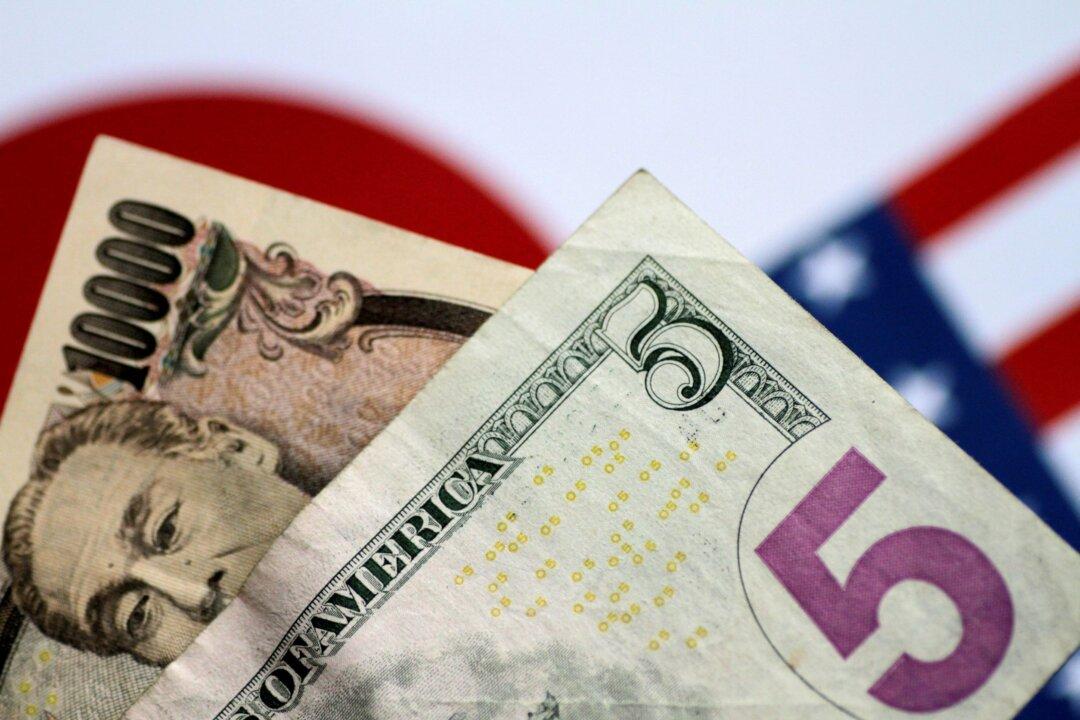LONDON—The Japanese yen weakened past the 126 yen per dollar mark on Wednesday for the first time since 2002, while the euro was pinned at a one-month low as investors bought the U.S. currency after hawkish comments by Federal Reserve officials.
The prospect of fast and aggressive U.S. interest rate hikes and growing market expectations that the Bank of Japan will keep rates ultra-low in the near term have fuelled the Japanese currency’s declines against the dollar.





